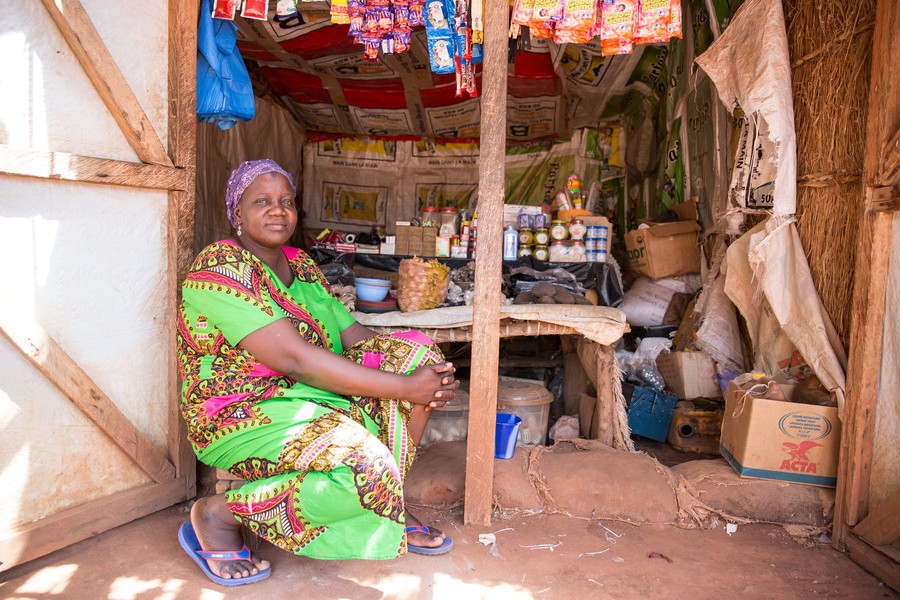A new forthcoming study by the International Organization for Migration (IOM) highlights the impact of remittances from Chadian diaspora on households in Chad. The study — which will be published later this year, is the first of its kind assessing “remittances behaviour” in the country.
The study surveyed over 800 households in N’Djamena, Chad’s capital city, to find out how remittances are sent by Chadian diaspora members, how these remittances are used by households, and what is the overall impact of remittances on households economic status. Furthermore, the study sought to understand the differences in the use of remittances between male and female-headed households.
It reveals that on average per month, a household in N’Djamena would receive 125,302 CFA Francs (232.42 USD), which is 10% more than the average annual income which was 113,807 CFA Francs (211,10 USD) in 2020, according to national statistics.
“This is evidence that remittances effectively provide a vital lifeline to households in Chad, and a first hint into the important relationship between remittances and socioeconomic development”, said François-Xavier Ada, Policy Officer with IOM Chad.
According to the study, households receiving remittances enjoy better living conditions than those not receiving them. Specifically, households receiving remittances are more often owners of their places of dwelling (66%), are more connected to the electric grid (87%), and have more access to a mobile phone and a bank account than households that do not receive remittances.
On how remittances are transferred, the study reveals that funds are transferred and received primarily (84%) through “formal” channels (including money transfer companies such as Western Union, MoneyGram and Money Express), banks (wire transfers) and exchange bureaus. Only 23% of the households surveyed declared receiving their funds through informal channels such as informal transfer services, friends or relatives, or travel agencies.
The preference for formal channels is justified by households for their efficiency (49%), accessibility (31%), low cost (13%) and familiarity (5%). For households receiving remittances through informal channels, the choice is justified by the familiarity (35%), accessibility (27%), efficiency (26%), and low cost (10%) of the informal channels.
These results show that in the case of N’Djamena, migrants’ choices for remittances channels are influenced primarily by efficiency, accessibility, and familiarity, and not necessarily cost of transfers, as may be suggested elsewhere.
“This suggests that financial inclusion and education may serve a valuable role to increase the use of formal channels”, says François-Xavier Ada.
The frequency of remittances analyzed in the study shows that 78% of remittances take place within an interval of less than three months. 17% receive them every six months and finally, 4% receive remittances yearly or in other intervals. Of note, female-headed households are more likely to receive remittances (65%) regularly than male-headed households (45%).
The study also provides a first insight into how remittances are used by households. 68% of the respondents said that the remittances they received were primarily used for general expenses related to the functioning of the household (other than food, health, and education). Next spending priorities for the remittances are food (61%), social reasons (58%), health (46%) and education (26%).
Most (52%) of households surveyed considered remittances moderately important in their budgets and 6% very important. This importance is more pronounced in households headed by women, 39% of whom believe that remittances are “necessary” to the household budget, compared to only 21% of households headed by men.
“Although this study is limited to N’Djamena, it offers for the first time an overview of the situation of remittances in Chad. However, Chad is a country with complex migration dynamics that vary from one region of the country to other. As such, more research is needed to better understand the scale and trends in remittances behavior across the country”, Mr. François-Xavier Ada adds.
The study is part of a project funded by the IOM Development Fund seeking to better understand remittances in Chad. In addition to the household study, a diaspora survey will be carried out to identify diaspora motivations and behaviours with regards to remittances. A remittances and investment guide for the Chadian diaspora will also be developed jointly with the Chadian Government.






